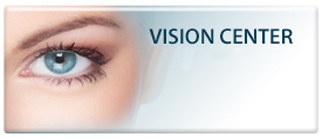Macular degeneration is an age-related condition that affects the eyes’ retinas. Age-related macular degeneration is often called AMD or ARMD. There is no cure for this condition, which can severely impair vision in older adults, though there are plenty of steps to take to slow down the progression of AMD.
Macular degeneration currently affects more than two million Americans, though the condition is expected to be much more common within the next decade as the general population ages. There are two main types of AMD: wet and dry.
Dry Macular Degeneration
This condition is also called atrophic and non-neovascular AMD. It refers to macular degeneration in its earlier stages. About 85–90% of cases of macular degeneration in Southaven are dry. We typically diagnose dry macular degeneration because yellow spots appear on the eye’s macula. While this condition is generally considered less severe than the wet variety, it can gradually lead to severe vision loss.
Wet Macular Degeneration
Dry AMD progresses to the less common, more serious wet macular degeneration phase in 10–15% of cases. This type of macular degeneration is also called exudative and neovascular. In wet AMD, the eye begins a process called choroidal neovascularization (CNV) in which new blood cells form under the retina and begin leaking blood and fluid. This process creates blind spots in the vision, which are typically the first detectable symptom. In “occult” wet AMD, CNV is not as pronounced. This type typically causes less severe vision loss. In “classic” AMD, CNV is very pronounced and clear, which leads to more severe vision loss in most cases.
Macular Degeneration Causes, Treatment and Prevention
The exact cause of AMD isn’t clear, though several risk factors for the disease have been identified. These include:
- Aging
- Obesity
- A sedentary lifestyle
- Smoking
- Heredity
- Hypertension
- Lighter eye color
- Medication side effects
There are no treatments available for dry macular degeneration, though we encourage our patients with AMD in Southaven to exercise, wear sunglasses with UV and HEV protection and eat foods high in omega-3 fatty acids. Some studies have also shown benefits from taking vitamins high in antioxidants, multivitamins and supplements called lutein and zeaxanthin.
Cases of wet macular degeneration are treated with one of a few FDA-approved medications, laser photocoagulation or a surgical procedure that implants a tiny telescope in the eye that magnifies images onto the retina.


